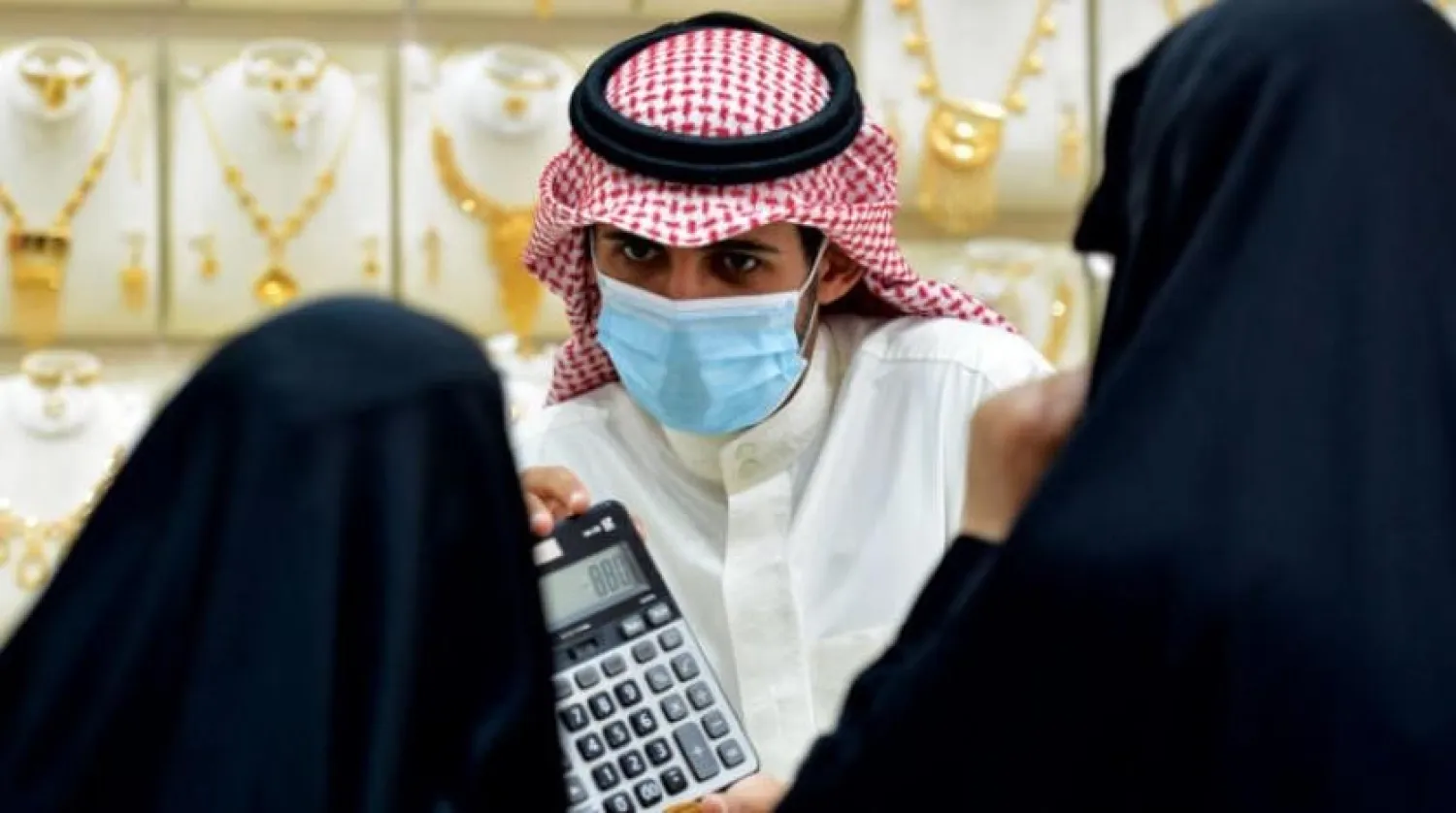The Saudi gold market is witnessing a stable supply amid increased demand, high market availability, and gold prices moving in unstable ranges due to the Russian-Ukrainian war.
Gold prices in Saudi Arabia returned to their levels three years ago, positively affecting the demand for purchase, especially on pure gold coins and bars, followed by refined gold pieces.
General Director of the Azzouz House for Gold and Jewelry, Mohammed Jamil Hashem Azzouz, told Asharq Al-Awsat that Saudi Arabia was one of the most stable countries during this war.
Azzouz indicated that the national economy proved its ability to face any repercussions and effects resulting from the Ukrainian crisis on the prices of commodities and minerals.
At the beginning of the Russian-Ukrainian war, gold witnessed noticeable declines due to fear and panic, but demand rose slightly, said Azzouz, adding that global prices continued to fluctuate.
In light of the increased demand in Saudi Arabia, Azzouz indicated that the demand percentage for yellow gold of high quality reached 70 percent, pointing out that the northern region is at the forefront in buying for "saving purposes," unlike the rest of the areas that buy gold for "adornment."
The price of a gram of 24 karat gold decreased to SR196.51, compared to SR197.01, while the cost of the most traded 21 karats reached SR171.95, and the gram of 18 karat gold fell to SR147.39 riyals from SR147.76.
The economic price of 14-karat gold reached about SR114.63, compared to SR114.92 on Tuesday, while the cost of 12-karat gold fell to about SR98.26, compared to SR98.51. The price of an ounce of gold was about SR6,112, while the price of a pound of gold of 21 carats amounted to about SR1,376.
Despite the recent fluctuations that swept the world due to the coronavirus pandemic and the Russian-Ukrainian war, Azzouz confirms that demand for gold is still much more potent than jewelry, especially after the concept of saving prevailed in the society.
He explained that gold is essential in times of need and fluctuations, placing the 24-carat coins and pieces at the top of demand in terms of market and savings, especially since any added tax does not cover it.
Azzouz noted that in second place comes golden items such as bracelets and bangles," which are pure without additives and do not carry an enormous manufacturing cost.
According to the Saudi financial system, the official explained that pure gold is not subject to taxes after the Zakat, Tax and Customs Authority exempted imported gold from value-added tax.
Gold is subject to tax at a rate of "zero" if its purity level is 99 percent and is tradable in the global market, while gold with a purity level of less than that is subject to a value-added tax of 15 percent, according to Azzouz.









